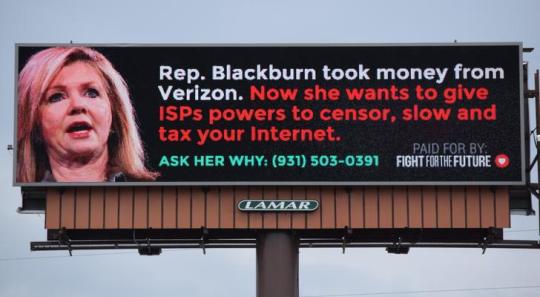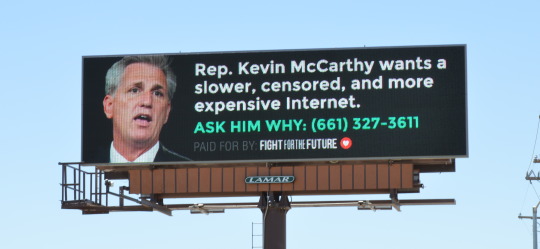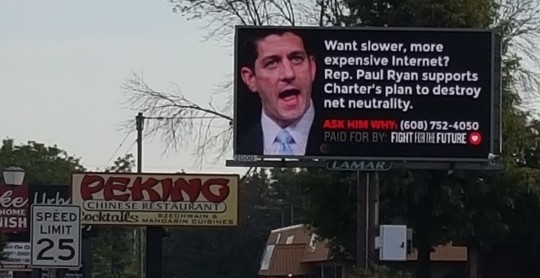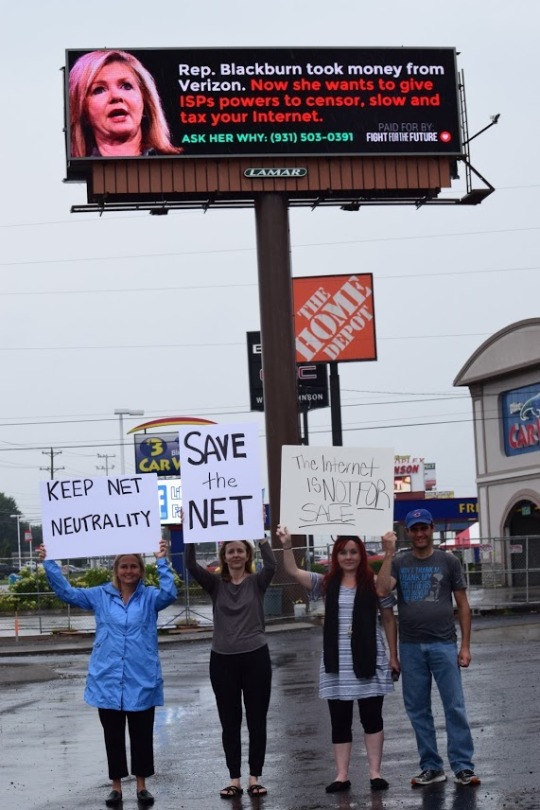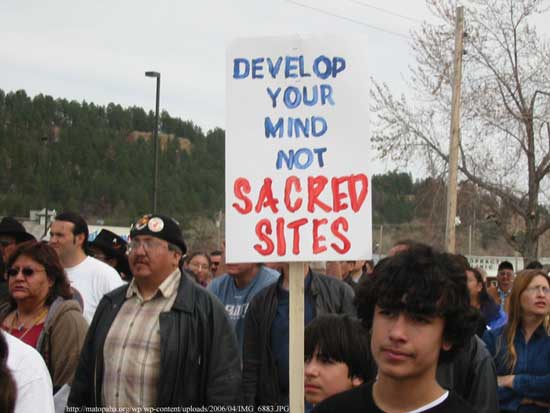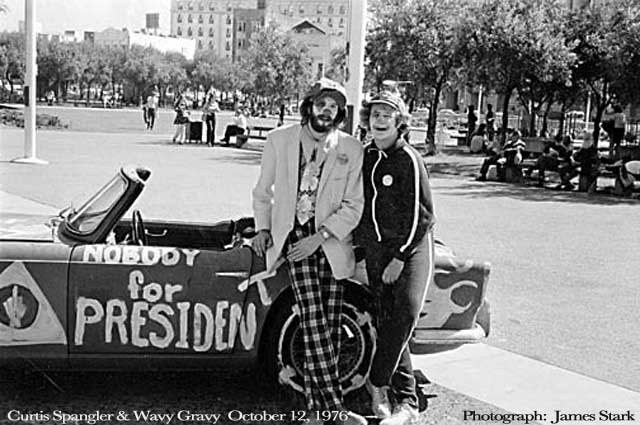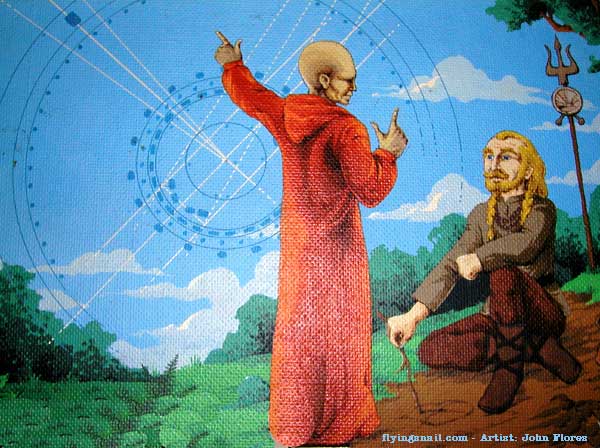Keep the Net Neutral
from McKenna FrymanWHAT COUNTS AS REAL? —
AT&T absurdly claims that most “legitimate” net neutrality comments favor repeal
AT&T ignores finding that 98.5% of unique comments favor net neutrality rules.
JON BRODKIN ~ 8/30/2017, 2:40 PM ~ Ars Technica Source
Telecom Crimes
Violation of the Fourth Amendment to the Constitution
Violation of the First Amendment to the Constitution
Unlawful electronic surveillance or disclosure or use of information obtained by electronic surveillance in violation of 50 U.S.C. §1809.
Unlawful interception, use or disclosure of Class communications in violation of 18 U.S.C. § 2511
Unlawful solicitation and obtained disclosure of the contents of communications in violation of 18 U.S.C. § 2702(a)(1) or (a)(2)
Unlawful solicitation and obtained disclosure of non-content records or other information in violation of 18 U.S.C. § 2702(a)(3)
Violation of the Administrative Procedures Act
Violation of the constitutional principle of separation of powers
PUNISHMENT PROVIDED BY POLITICIANS:
Telecom Punishment for Illegal Spying on U.S. Citizens
posted by Dahbud
via Chartis:
AT&T is the top job-cutter
among the tax-dodging firmsThe telecommunications giant managed to get away with an effective tax rate of just 8.1 percent over the 2008-2015 period, while cutting more jobs than any other firm in our sample. After accounting for acquisitions and spinoffs, the firm had nearly 80,000 fewer employees in 2016 than in 2008. Instead of job-preserving investments, the firm shoveled profits into stock buybacks ($34 billion over the past nine years) and CEO pay. AT&T chief Randall Stephenson pulled in $28.4 million in 2016, more than double his 2008 payout.
http://www.ips-dc.org/wp-content/uploads/2017/08/EE17-final-embargoed-for-August-30.pdf
Despite a study showing that 98.5 percent of individually written net neutrality comments support the US's current net neutrality rules, AT&T is claiming that the vast majority of "legitimate" comments favor repealing the rules.
The Federal Communication Commission's net neutrality docket is a real mess, with nearly 22 million comments, mostly from form letters and many from spam bots using identities stolen from data breaches. AT&T is part of an industry group called Broadband for America that just funded a study that tries to find trends within the chaos.
As we wrote earlier today, that study (conducted by consulting firm Emprata) found fewer than 1.6 million filings appear to have "originated from individuals that took the time to type a personalized comment." Of those, 1.52 million were against FCC Chairman Ajit Pai's plan to repeal the current Title II net neutrality rules, while just 23,000 were in favor of repeal.
Let's contrast that finding with what AT&T Executive VP Joan Marsh wrote in a blog post today:
"While Title II proponents may claim that millions of consumers representing the large majority of commenters support Title II, in fact, most of these comments were not legitimate. And when only legitimate comments are considered, the large majority of commenters oppose Title II regulation of Internet access."
In related comments filed with the FCC today, AT&T accused Title II proponents of "stuff[ing] the... ballot box with millions upon millions of sham 'comments.'"
AT&T analysis doesn’t account for spam bots
Marsh's blog post does not refer directly to the Emprata study. Instead, it links to a Multichannel News article that describes Broadband for America's interpretation of the study. The broadband industry lobby group argues that 69.9 percent of legitimate comments support repealing the rules.
After linking to that article, Marsh writes that most comments on the FCC docket "appear to us to be fraudulent. Millions of comments were generated using phony e-mail addresses. Millions of others were generated using duplicative e-mail or physical addresses. And still others originated overseas. Consider this: nearly 450,000 comments were filed using Russian addresses, all but four in support of Title II regulation of Internet services."
That all appears to be true, but that doesn't prove that the majority of legitimate comments oppose the current Title II net neutrality rules.
Marsh reasonably excludes millions of comments that appear to be have been submitted with fake contact information, such as e-mails with artificial domains or that were submitted multiple times using the same contact information. But the docket is also filled with spam comments falsely attributed to people whose names and addresses were taken from data breaches. These comments would appear to come from real people despite being fraudulent, yet AT&T did not mention this problem.
Most comments on the docket are based on form letters, i.e. blocks of text pre-written by advocacy groups and ostensibly submitted by real people who agree with the sentiment.
Form letter comments are often legitimate expressions of support or opposition to the current rules, but many of them were also submitted by spam bots, not the actual people whose names are attached to the comments. One anti-net neutrality form letter comment whose spread was attributed at least partly to a bot has appeared on the docket more than 800,000 times under various names, for example.
People who say their names and addresses were attached to anti-net neutrality comments without their permission asked the FCC to remove fraudulent comments from the docket, but the FCC has not done so. Given that these comments were submitted under real people's names and addresses, they would apparently count as "legitimate" opposition to net neutrality rules in AT&T's analysis. The Emprata study examined fake e-mail addresses and duplicate addresses, but did not mention the problem of identities from data breaches being used to fake opposition to net neutrality rules.
Conclusions depend on your definition of “real”
Today is the final day of the public comment period on the FCC proposal to eliminate the Title II common carrier classification of broadband providers and repeal or replace the net neutrality rules against blocking, throttling, and paid prioritization.
The anti-Title II crowd relied on form letters more heavily than the pro-Title II crowd; 99.6 percent of anti-Title II comments came from form letters while 89.8 percent of pro-Title II comments were based on form letters, according to Emprata.
AT&T led a form-letter campaign itself; the company claimed to be in favor of net neutrality rules while trying to convince its customers to support repealing the current rules.
A tally of all 21.8 million comments evaluated in the Emprata study, regardless of their origin, found that 60 percent supported keeping the current rules and 39 percent supported repealing them. Emprata noted that the results shift in the other direction (61 percent against the current rules) if you exclude comments with fake e-mail addresses.
But the exclusion of fake e-mail addresses doesn't guarantee that all of the remaining comments are legitimate. That's because of the spam bot problem we just described.
Emprata notes that "it is very difficult to draw any definitive conclusions from the comments found in the docket. Any conclusions that one might draw from the data would be based on the subset of data that [one] considered to be 'real.'"
Net neutrality advocacy group Fight for the Future argues that the most "real" comments are the ones written by individuals. Fight for the Future has led form letter submission campaigns itself, but recognizes that it takes more effort to write one's own comment.
"The most telling statistic in the report is that the unique comments in the docket—the ones that people took the extra time to write themselves—are overwhelmingly in favor of Title II net neutrality protections, by more than 73 to 1," the group said.
JON BRODKIN
Jon is Ars Technica's senior IT reporter, covering the FCC and broadband, telecommunications, wireless technology, and more.
EMAIL jon.brodkin@arstechnica.com // TWITTER @JBrodkin
The Backchannel is the Message
Posted on May 18, 2017 by samuelthefifth ~ Status 451 Source
There’s a pernicious problem in rule making: it is much easier to introduce a rule than to remove it. To borrow a phrase from Pascal, “if I had had more time, I would have written a shorter rulebook,” and this applies just the same whether those rules are meant for computers or for people. The fewer parts there are, the less they can interact in surprising ways.
If we lose sight of this in our rule making, we invite the same kinds of pathology we see more readily with technology. We suffer exploits due to unforeseen consequences, and we are prevented from fixing them due to an ever growing maintenance overhead. Rather than try to untangle the resulting monolith of interactions, often the only compassionate action is to take it out back and put it out of its misery. If too many people are invested, though, this rarely happens, and we simply truck on.
Furthermore, what is left out can be as important as what is said. Rules are only as useful as the environment in which they are enforced. If that environment is one with hidden layers and unseen levers, the result may be quite the opposite of what is written.
Where am I going with this?
Over at the farm of ribbons, Sonya Mann has written a very interesting piece about community governance. She posits a dichotomy between two approaches, the content-oriented and the process-oriented. Or, more simply, ends versus means. It applies to the kulturkampf, of course:
“It’s okay when we do it, because our ends are just.” vs “I will defend their right to say it, even if I strongly disagree.”
Those focused on content seek to achieve satisfaction in the result, desiring correctness of values. Those focused on process seek to achieve consistency in the methodology, desiring fair application of rules.
As a model, it’s lovely, and it can help to bridge the often insurmountable gap between two camps. If you are unable to model why someone does something, you are left to ascribe to idiocy or malice what is, to them, actually a principled stance. Accusations of bad faith naturally result, as do the 140 glyph bursts of thinly veiled vitriol and quick dismissal.
The only issue I have with this model is that it flies in the face of reality on the ground. I’m a fan of the process side of things, but the problem I have with the social justice contingent isn’t that they don’t do enough rule making. Quite the opposite.
For most of the last decade, we’ve been pushed to adopt Codes of Conduct. Notably in Ada Initiative’s anti-harassment policy, and now the Github-approved Contributor Covenant, what we find is a long list of prohibited behaviors and processes for enforcement. This is scoped to exceed any individual project and extends into the public sphere.
Reading the language, it sure looks like they didn’t want to leave any stone unturned:
“Harassment includes offensive verbal comments related to gender, sexual orientation, disability, physical appearance, body size, race, religion, or other protected class status, sexual images in public spaces, deliberate intimidation, stalking, following, harassing photography or recording, sustained disruption of talks or other events, inappropriate physical contact, and unwelcome sexual attention.” (Ada)
“Project maintainers have the right and responsibility to remove, edit, or reject comments, commits, code, wiki edits, issues, and other contributions that are not aligned to this Code of Conduct, or to ban temporarily or permanently any contributor for other behaviors that they deem inappropriate, threatening, offensive, or harmful.” (Covenant)
This is not the work of someone who values content over process. No, this is rule making supreme. Indeed, this is the result of long discussions and threads, arguing over the exact wording. The people who introduce and adopt this sort of language clearly think the precise rules matter. This picture really starts to crack in two distinct ways.
One is that there’s always a final rule, an “etcetera” catch-all clause. It will, for example, prohibit “other conduct which could reasonably be considered inappropriate.” This by itself should be odd: why bikeshed over a long list of detailed sins, if it turns out they’re just illustrations after all?
The other is that these rules are put in place through decidedly soft power: contributors and speakers have explicitly promised to boycott those who do not adopt them. Arguing for a markedly different approach altogether is treated as defection. This is the surest sign that the real rules are not the ones on paper at all.
If you look back at particular incidents of modern witch hunting, there’s a pretty consistent theme: it’s okay to break the rules to catch a witch. Despite a rulebook that says you must use “welcoming and inclusive language,” insults easily fly left and right towards the targets, as do the calls for violence, ironic or not. Being “respectful of differing viewpoints and experiences” doesn’t apply to viewpoints or experiences that are toodifferent. “Showing empathy towards others” has a very limited action radius, as certain notoriously noxious individuals have demonstrated.
It gets even worse, as seen in the most recent case in the Drupal community. Not only were the rules broken to dig up dirt on a dastardly unperson, but the target was actually found not to be in violation of the rules at all. Not even by applying catch-all clauses. Did the aggressors put down their torches and pitchforks in shame, did the committee “show empathy towards [its] community members?” Nope.
What happened instead is extremely illustrative. The Community Working Group rejected its own verdict based on its own rules, and escalated the issue to the backchannel. This led to a long and drawn-out PR exercise by the powers that be. The community was left to guess and argue over the resulting secret meetings and edited statements, while the accused in question felt his only recourse was to blog openly and at length about his private life.
The flaw in the model, as I see it, is that the content side doesn’t just think “it’s okay when we do it.” It would be easier to swallow if that were the going premise, openly admitted. No, it’s that they insist up-and-down that rules are absolutely necessary for everyone. That diversity officers and arbitration committees must be established, with official seals of approval (and handsome paychecks to boot). The net result is that the language of compassion and tolerance can be seamlessly used to paper over destructive and vindictive personal agendas.
None of this is in the rulebook, but it doesn’t have to be. The rulebook is the foot in the door, used to legitimize everything else. It is undoubtedly well intentioned, but it is wide open to abuse, and the 0-day exploits have been in the wild for years. Good intentions are worth nothing when bad actions consistently result.
In the resulting discussions, there’s a particular flip that occurs, too. These problems are denied, at first, up until a plaintiff demonstrates a solid enough case. Then, without skipping a beat, we are told nothing is perfect, and that the alternative would be far worse. The rationale that the ends justify the means only comes into play when pressed. The argument has actually changed completely, but the emotional valence is the same: we’re right, we’re the good guys, and you’re bad for not following along. Cognitive dissonance averted. The resulting radioactive fall-out is fine by them, as long as it’s aimed in the general vicinity of the right group of wrong people.
I don’t think the choice to backchannel and deploy PR tactics is an isolated one, either. It’s hard to miss that as public discourse has gotten more polarized, more and more social interaction online has moved into private or semi-private venues. Products like Slack and Discord have ridden this trend to great success. While it’s true the old realms of Usenet and IRC were equally fragmented, what those networks had that the new ones lack is the simple ease of discoverability.
In the search for more welcoming and inclusive environments, it has become standard policy to adopt a process of soft vetting and gatekeeping through obscurity. This in itself is a noteworthy trend, as it’s normally a hallmark of totalitarian societies, where real intellectual freedom only happens behind closed doors. It’s not necessarily a bad thing to be selective, but it does fly in the face of oft-repeated intentions. One might also wonder about the supposed safety of said closed venues, when they’re fully controlled by a handful of tech companies with an increasingly restrictive political monoculture.
It doesn’t take a genius to notice this and worry that you might be next. When faced with an unpatched exploit, people will adapt their behavior to mitigate the danger regardless. Worse, in the eyes of the justice seekers, this is a good thing, for their ends are being achieved—in this, the model is spot on. But to do so, they are not abandoning process, no, they are adding ever more rules, embedded into the very social fabric of their communities. We can expect goalposts to be moved towards legislating values rather than conduct, as the conditions that set off the witch detector will have to be necessarily broadened. The cure for the dysfunction that results is ever only more of the poison. This too is an unwritten rule.
It does, however, bring us closer to the heart of the matter: certain ideas themselves have become sacred, which was already observed years ago in comics:
No amount of actual discussion can take place as long as the critics view the very act of counterargument as morally indefensible because of the class or gender of the defenders, or the language used. Only one side is accusing the other of being scum, only one side is insisting that the other side should just shut up and stop speaking their mind. And it’s not Team Dickwolves.
Maybe the real dickwolves were wearing sheep’s clothing all along.
It’s supremely naive to take people at their word, especially when their words are law, and their actions say the exact opposite.
It's become more and more clear that what's happening
is motivated by a Hegelian/Marxian ideology of
thesis-antithesis power strugglevia franksvalli ~ Reddit Source
Here and elsewhere, it's become more and more clear that what's happening is motivated by a Hegelian/Marxian ideology of thesis-antithesis power struggle.
One of the interesting results of this is that while a Code of Conduct regulates the speech and behavior of a community explicitly, behind that there is an implicit assumption of the power and worth of statements based upon which group the speaker belongs to: the thesis or the antithesis, that is, the dominant ideology or the secondary ideology.
A clear result of this, as we see illustrated here, is that an action or statement out of the mouth of speaker A is notweighed equally with the action or statement out of the mouth of speaker B. This is why statements that are flipped to be equal and opposite are actually thought of to CoC enforcers as wildly different magnitudes of offense. What becomes acceptable and unacceptable according to the Code of Conduct becomes not so much what the actor says or how they act, but what group they belong to.
For instance, if a member of the secondary ideology acts completely outrageously, they are treated with kid gloves because they are from the secondary/submissive ideology. It's assumed that they are historically repressed - and that they haven't been able to have their say, so we should give them a pass, no matter how outrageous their conduct is.
Conversely, if a member of the dominant ideology acts even the least bit against the grain or even the least bit politically incorrect, the hammer comes down on them. Through no choice of their own, they have been born into the dominant ideology and should tread as lightly as possible, so as to give others a chance. The very smallest transgressions are seen as attempts to stifle the secondary ideology.
If you want to think of it kind of mathematically, you can think of it as a multiplying factor.
"How great is the offense of speaker A?". Because they're a member of the dominant ideology, the offense is the weight of the action/statement itself multiplied by 10.
"How great is the offense of speaker B?". Because they're a member of the secondary/submissive ideology, the offense is the weight of the action/statement itself multiplied by 0.1
Today's Secret Question Is:What is Dialectic?
Dialectic or dialectics (Greek: διαλεκτική, dialektikḗ), also known as the dialectical method, is a discourse between two or more people holding different points of view about a subject but wishing to establish the truth through reasoned arguments and is not synonymous with the term debate.
Dialectics (also called logic) was one of the three liberal arts taught in medieval universities as part of the trivium. The trivium also included rhetoric and grammar.
Dialectic was formed as follows:
1). The Question to be determined
2). The principal objections to the question
3). An argument in favor of the Question, traditionally a single argument ("On the contrary...")
4). The determination of the Question after weighing the evidence. ("I answer that...")
5). The replies to each objection
Hegelian dialectic
Hegelian dialectic, usually presented in a threefold manner, was stated by Heinrich Moritz Chalybäus as comprising three dialectical stages of development: a thesis, giving rise to its reaction, an antithesis, which contradicts or negates the thesis, and the tension between the two being resolved by means of a synthesis. In more simplistic terms, one can consider it thus; problem->reaction->solution. Although this model is often named after Hegel, he himself never used that specific formulation. Hegel ascribed that terminology to Kant.Carrying on Kant's work, Fichte greatly elaborated on the synthesis model, and popularized it.
On the other hand, Hegel did use a three-valued logical model that is very similar to the antithesis model, but Hegel's most usual terms were: Abstract-Negative-Concrete. Hegel used this writing model as a backbone to accompany his points in many of his works.
The formula, thesis-antithesis-synthesis, does not explain why the thesis requires an antithesis. However, the formula, abstract-negative-concrete, suggests a flaw, or perhaps an incompleteness, in any initial thesis—it is too abstract and lacks the negative of trial, error, and experience. For Hegel, the concrete, the synthesis, the absolute, must always pass through the phase of the negative, in the journey to completion, that is, mediation. This is the essence of what is popularly called Hegelian Dialectics.
According to the German philosopher Walter Kaufmann:
"Fichte introduced into German philosophy the three-step of thesis, antithesis, and synthesis, using these three terms. Schelling took up this terminology. Hegel did not. He never once used these three terms together to designate three stages in an argument or account in any of his books. And they do not help us understand his Phenomenology, his Logic, or his philosophy of history; they impede any open-minded comprehension of what he does by forcing it into a scheme which was available to him and which he deliberately spurned [...] The mechanical formalism [...] Hegel derides expressly and at some length in the preface to the Phenomenology.
Kaufmann also cites Hegel's criticism of the triad model commonly misattributed to him, adding that "the only place where Hegel uses the three terms together occurs in his lectures on the history of philosophy, on the last page but one of the section on Kant—where Hegel roundly reproaches Kant for having 'everywhere posited thesis, antithesis, synthesis'".
To describe the activity of overcoming the negative, Hegel also often used the term Aufhebung, variously translated into English as "sublation" or "overcoming," to conceive of the working of the dialectic. Roughly, the term indicates preserving the useful portion of an idea, thing, society, etc., while moving beyond its limitations. (Jacques Derrida's preferred French translation of the term was relever.)
In the Logic, for instance, Hegel describes a dialectic of existence: first, existence must be posited as pure Being (Sein); but pure Being, upon examination, is found to be indistinguishable from Nothing (Nichts). When it is realized that what is coming into being is, at the same time, also returning to nothing (in life, for example, one's living is also a dying), both Being and Nothing are united as Becoming.
As in the Socratic dialectic, Hegel claimed to proceed by making implicit contradictions explicit: each stage of the process is the product of contradictions inherent or implicit in the preceding stage. For Hegel, the whole of history is one tremendous dialectic, major stages of which chart a progression from self-alienation as slavery to self-unification and realization as the rational constitutional state of free and equal citizens. The Hegelian dialectic cannot be mechanically applied for any chosen thesis. Critics argue that the selection of any antithesis, other than the logical negation of the thesis, is subjective. Then, if the logical negation is used as the antithesis, there is no rigorous way to derive a synthesis. In practice, when an antithesis is selected to suit the user's subjective purpose, the resulting "contradictions" are rhetorical, not logical, and the resulting synthesis is not rigorously defensible against a multitude of other possible syntheses. The problem with the Fichtean "thesis–antithesis–synthesis" model is that it implies that contradictions or negations come from outside of things. Hegel's point is that they are inherent in and internal to things. This conception of dialectics derives ultimately from Heraclitus.
Hegel stated that the purpose of dialectics is "to study things in their own being and movement and thus to demonstrate the finitude of the partial categories of understanding."
One important dialectical principle for Hegel is the transition from quantity to quality, which he terms the Measure. The measure is the qualitative quantum, the quantum is the existence of quantity.
"The identity between quantity and quality, which is found in Measure, is at first only implicit, and not yet explicitly realised. In other words, these two categories, which unite in Measure, each claim an independent authority. On the one hand, the quantitative features of existence may be altered, without affecting its quality. On the other hand, this increase and diminution, immaterial though it be, has its limit, by exceeding which the quality suffers change. [...] But if the quantity present in measure exceeds a certain limit, the quality corresponding to it is also put in abeyance. This however is not a negation of quality altogether, but only of this definite quality, the place of which is at once occupied by another. This process of measure, which appears alternately as a mere change in quantity, and then as a sudden revulsion of quantity into quality, may be envisaged under the figure of a nodal (knotted) line".
As an example, Hegel mentions the states of aggregation of water: "Thus the temperature of water is, in the first place, a point of no consequence in respect of its liquidity: still with the increase or diminution of the temperature of the liquid water, there comes a point where this state of cohesion suffers a qualitative change, and the water is converted into steam or ice". As other examples Hegel mentions the reaching of a point where a single additional grain makes a heap of wheat; or where the bald tail is produced, if we continue plucking out single hairs.
Another important principle for Hegel is the negation of the negation, which he also terms Aufhebung (sublation): Something is only what it is in its relation to another, but by the negation of the negation this something incorporates the other into itself. The dialectical movement involves two moments that negate each other, something and its other. As a result of the negation of the negation, "something becomes its other; this other is itself something; therefore it likewise becomes an other, and so on ad infinitum". Something in its passage into other only joins with itself, it is self-related. In becoming there are two moments: coming-to-be and ceasing-to-be: by sublation, i.e., negation of the negation, being passes over into nothing, it ceases to be, but something new shows up, is coming to be. What is sublated (aufgehoben) on the one hand ceases to be and is put to an end, but on the other hand it is preserved and maintained. In dialectics, a totality transforms itself; it is self-related, then self-forgetful, relieving the original tension.
Marxist dialectic
Karl Marx and Friedrich Engels proposed that G.F. Hegel had rendered philosophy too abstractly ideal:
The mystification which dialectic suffers in Hegel's hands, by no means prevents him from being the first to present its general form of working in a comprehensive and conscious manner. With him it is standing on its head. It must be turned right side up again, if you would discover the rational kernel within the mystical shell.
In contradiction to Hegelian idealism, Karl Marx presented dialectical materialism (Marxist dialectic):
My dialectic method is not only different from the Hegelian, but is its direct opposite. To Hegel, the life-process of the human brain, i.e. the process of thinking, which, under the name of 'the Idea', he even transforms into an independent subject, is the demiurgos of the real world, and the real world is only the external, phenomenal form of 'the Idea'. With me, on the contrary, the ideal is nothing else than the material world reflected by the human mind, and translated into forms of thought.
In Marxism, the dialectical method of historical study became intertwined with historical materialism, the school of thought exemplified by the works of Marx, Engels, and Vladimir Lenin. In the USSR, under Joseph Stalin, Marxist dialectics became "diamat" (short for dialectical materialism), a theory emphasizing the primacy of the material way of life; social "praxis" over all forms of social consciousness; and the secondary, dependent character of the "ideal". The term "dialectical materialism" was coined by the 19th-century social theorist Joseph Dietzgen who used the theory to explain the nature of socialism and social development. The original populariser of Marxism in Russia, Georgi Plekhanov used the terms "dialectical materialism" and "historical materialism" interchangeably. For Lenin, the primary feature of Marx's "dialectical materialism" (Lenin's term) was its application of materialist philosophy to history and social sciences. Lenin's main input in the philosophy of dialectical materialism was his theory of reflection, which presented human consciousness as a dynamic reflection of the objective material world that fully shapes its contents and structure. Later, Stalin's works on the subject established a rigid and formalistic division of Marxist–Leninist theory in the dialectical materialism and historical materialism parts. While the first was supposed to be the key method and theory of the philosophy of nature, the second was the Soviet version of the philosophy of history.
A dialectical method was fundamental to Marxist politics, e.g., the works of Karl Korsch, Georg Lukács and certain members of the Frankfurt School. Soviet academics, notably Evald Ilyenkov and Zaid Orudzhev, continued pursuing unorthodox philosophic study of Marxist dialectics; likewise in the West, notably the philosopher Bertell Ollman at New York University.
Friedrich Engels proposed that Nature is dialectical, thus, in Anti-Dühring he said that the negation of negation is:
A very simple process, which is taking place everywhere and every day, which any child can understand as soon as it is stripped of the veil of mystery in which it was enveloped by the old idealist philosophy.
In Dialectics of Nature, Engels said:
Probably the same gentlemen who up to now have decried the transformation of quantity into quality as mysticism and incomprehensible transcendentalism will now declare that it is indeed something quite self-evident, trivial, and commonplace, which they have long employed, and so they have been taught nothing new. But to have formulated for the first time in its universally valid form a general law of development of Nature, society, and thought, will always remain an act of historic importance.
Marxist dialectics is exemplified in Das Kapital (Capital), which outlines two central theories: (i) surplus value and (ii) the materialist conception of history; Marx explains dialectical materialism:
In its rational form, it is a scandal and abomination to bourgeoisdom and its doctrinaire professors, because it includes in its comprehension an affirmative recognition of the existing state of things, at the same time, also, the recognition of the negation of that state, of its inevitable breaking up; because it regards every historically developed social form as in fluid movement, and therefore takes into account its transient nature not less than its momentary existence; because it lets nothing impose upon it, and is in its essence critical and revolutionary.
Class struggle is the central contradiction to be resolved by Marxist dialectics, because of its central role in the social and political lives of a society. Nonetheless, Marx and Marxists developed the concept of class struggle to comprehend the dialectical contradictions between mental and manual labor, and between town and country. Hence, philosophic contradiction is central to the development of dialectics – the progress from quantity to quality, the acceleration of gradual social change; the negation of the initial development of the status quo; the negation of that negation; and the high-level recurrence of features of the original status quo. In the USSR, Progress Publishers issued anthologies of dialectical materialism by Lenin, wherein he also quotes Marx and Engels:
As the most comprehensive and profound doctrine of development, and the richest in content, Hegelian dialectics was considered by Marx and Engels the greatest achievement of classical German philosophy.... "The great basic thought", Engels writes, "that the world is not to be comprehended as a complex of ready-made things, but as a complex of processes, in which the things, apparently stable no less than their mind images in our heads, the concepts, go through an uninterrupted change of coming into being and passing away... this great fundamental thought has, especially since the time of Hegel, so thoroughly permeated ordinary consciousness that, in its generality, it is now scarcely ever contradicted.
But, to acknowledge this fundamental thought in words, and to apply it in reality in detail to each domain of investigation, are two different things.... For dialectical philosophy nothing is final, absolute, sacred. It reveals the transitory character of everything and in everything; nothing can endure before it, except the uninterrupted process of becoming and of passing away, of endless ascendancy from the lower to the higher. And dialectical philosophy, itself, is nothing more than the mere reflection of this process in the thinking brain." Thus, according to Marx, dialectics is "the science of the general laws of motion both of the external world and of human thought".
Lenin describes his dialectical understanding of the concept of development:
A development that repeats, as it were, stages that have already been passed, but repeats them in a different way, on a higher basis ("the negation of the negation"), a development, so to speak, that proceeds in spirals, not in a straight line; a development by leaps, catastrophes, and revolutions; "breaks in continuity"; the transformation of quantity into quality; inner impulses towards development, imparted by the contradiction and conflict of the various forces and tendencies acting on a given body, or within a given phenomenon, or within a given society; the interdependence and the closest and indissoluble connection between all aspects of any phenomenon (history constantly revealing ever new aspects), a connection that provides a uniform, and universal process of motion, one that follows definite laws – these are some of the features of dialectics as a doctrine of development that is richer than the conventional one.
With that Said, Maybe It's Time To
Read This _or_ Listen to this ?
Boptime with Even Steven + Legends of Wilmington Jazz
On Saturday’s Boptime we begin at 6am (EDT) with the original cast recording of the Broadway musical Annie Get Your Gun from this day in 1946, then fill out the hour with American composer Cecil Effinger’s Little Symphony from the same year followed by a little of Dizzy Gillespie’s big band. At 7am (EDT) we continue with music from this day in 1946, just as the “baby boom” was launched and those post-war “Levittowns” began to spring up in the suburbs. At 8am (EDT), we’ll hear some classic “piano pounders” on Rockabilly Ridge with Michael Ace. On Beatlemania!!! at 9am (EDT) we sample a little of the Beatles’ 1965 west coast tour of the United States, followed by some great tunes from this day in that same year. ~ Steve
Boptime: Saturday, 6 AM Eastern, 3 AM Pacific
Go To: http://www.wvud.org/?page_id=24
Click on a listening link below the WVUD logo:
Van the Man from S. E. Hall ~ https://vimeo.com/11209410
PPRS ~ Pacific Packet Radio Society, Historic 1st Wireless Digital Communication
Today, on August 23, 1984,
I made World History, again.[It] “Blows My Mind"
Comment by Curtis during 1980 CBS Interview with Maria Shriver:
http://www.flyingsnail.com/Scrapbook/video/1980.movALOHA
It has been suggested in a number of documents, publications, and books [pprs.org] that Curtis Spangler developed and built a QAM modulated data radio computer / transceiver interface and designed THE STANFORD PACKET RADIO NETWORK, under the direction of Michael J. Flynn, with assistance from Andrew Zimmerman, at Computer Systems Laboratory, Electrical Engineering Department, Stanford University, and that he was the person who completed ALOHA's goal, when he successfully transmitted and received [16 signals of] quadrature amplitude modulated data with Dr. Flynn on August 23, 1984.
HIGH-SPEED PACKETS
ARRL GATEWAY, Vol. 1, No. 2, August 28, 1984 ~ ARRL Home
On August 23, Curtis Spangler, N6ECT, and Mike Flynn, W2FRT, exchanged packets at 9600 bauds using quadrature amplitude modulation (QAM) techniques. Both stations were using personal computers, 9600-bit/s modems, homemade radio/modem interfaces, and 440-MHz radios. Special software, written in Turbo Pascal, drove the synchronous data link controller (SDLC) cards in the computers. Over the five-mile path between the stations, there were no errors using 10 watts, and 60% to 70% throughput at one watt. Via KA6M
Your Gateway to Packet Radio
by Stan Horzepa, WA1LOU, American Radio Relay League, Page 2-8, Chapter 2
1984: Historic Firsts
Curtis Spangler and Mike Flynn exchanged packets at 9600 bauds on August 23, 1984, using quadrature amplitude modulation (QAM) techniques. Over a five-mile path, there were no errors using 10 watts, and 60% to 70% throughput using one watt.
Pacific Packet Radio Society
Wireless Digital Communication was introduced (in the United States) by Dr. Hank Magnuski (Co-founder of PPRS), when his historic KA6M-1 Digital Packet Radio Repeater began operation on:
December 10, 1980
Pacific Packet Radio Society gateway | history | photos | papers | links | packet audio | videoDear Packet Radio Enthusiast,
Thanks very much for the letter of inquiry which you sent me. The response I've received to the initial publicity about the packet repeater has been very enthusiastic, and I have been deluged with requests from hams, both locally and from various points around the country, for more information about the repeater, for schematics, for listings, specifications, modems, proms, SDLC chips, Vancouver boards, and for talks at clubs. Needless to say, all this activity, plus continuing development on the packet hardware and software has kept me very busy, and I apologize for the long delay in responding to your letter. Let me bring you up to date on what has happened, or is happening, since the initial announcement of the repeater, which went on the air in December of 1980.
World's First Digital Repeater for Wireless Data Communications
KA6M/R - Packet Radio Repeater. 1980 ~ Front View ~ PPRS photos
World's First Digital Repeater for Wireless Data Communications
KA6M/R - Packet Radio Repeater, 1980 ~ Back View ~ PPRS photosIn the early months of this year, the packet repeater was operating out of my residence, and was still an experimental machine. Since then, we have installed a couple of upgrades to the control software, we have used a better CPU card, increased the power level, moved the repeater to 700 feet elevation, and integrated its operation to be 100% compatible with the protocol used by the Vancouver Digital Communications Group (VADCG). The repeater has changed from being a laboratory curiosity to a major Bay Area repeater heard from Berkeley to south San Jose, and the user community has grown from a couple of stations to a network of some 30 users. The packet system here now has a mailbox on-line 24 hours a day, several on-line personal computers, and network links (courtesy of a commercial packet network) to the other active packet radio centers in Vancouver and Ottawa. We have also just installed an HF port on 20 Meters, and are beginning some experiments aimed at establishing connection with AMRAD in Washington and with equipment located at W1AW.
VADCG TNC built by C. Spangler, N6ECT- PPRS photosMost of the original packet radio experiments were done in Canada (in part due to the Canadians' pioneering communications spirit, and in part due to less restrictive regulations up there), and three main centers were at work: Montreal, Ottawa and Vancouver. The technology employed by each of these groups differed, and each approach has its own merits. My thinking and ideas very closely paralleled the work started by Doug Lockhart, VE7APU, and I can best report on what is happening with groups which have adopted HDLC (High-level Data Link Control) framing as the basis of their protocol. The HDLC/ SDLC frame is a new, universally accepted standard in the data communications industry, and Doug and I feel it offers a good starting point on which to build a packet radio network. As it turns out, groups in Washington D.C., Los Angeles, El Paso, Denver, Sacramento, and Hamilton have also taken up this technology, and it is likely that we already have a sufficient number of people using this technique that it will become the defacto standard in the amateur radio community.
It would be impossible for me to completely describe the protocol and equipment being used in this letter, so I will briefly cover some of the topics and give you some pointers on where to find additional information. As you might guess, this is a new area for amateur radio, and tutorial material and handbooks simply do not yet exist. Many issues and problems remain to be discussed, and there is opportunity to make substantial contributions to the state of the art. [Snip] [Continue Reading] - Thanks again for your interest. See you on the net. Best regards, Hank Magnuski, KA6M - [More Papers and History]
Diga Diga Doo by/from Swing Zazou ~ https://vimeo.com/177763243
Dreamstreets 26 with Even Steven [Leech]
Dreamstreets 26 returns to WVUD 91.3 fm / WVUD.org every Tuesday afternoon at 2pm (EDT) ~ 11am (PDT). This series mingles the work by current local poets and authors with the history of Delaware’s literature.
Today, Tuesday August 22nd, is Dreamstreets 26 final show of this season.
Dreamstreets 26: Tuesday ~ 2 PM EDT ~ 11 AM PDT
Go To: http://www.wvud.org/?page_id=24
Click on a listening link below the WVUD logo:
Culpa Actus Reus?
The Psychology of Memes from Julia Mitelman ~ https://vimeo.com/52826142
Should the Father of Abrahamic Religions Be Charged with Criminal Neglect of Children?
Life After Net: Giving Birth to the Dancing Baby from Great Big Story ~ https://vimeo.com/210782072
Should YAHWEH be charged with criminal neglect for the current state of world conditions?
Rick Astley - Never gonna give you up from F.J ~ https://vimeo.com/189124462
Eclipse Day ~ August 21, 2017
It was requested animals be observed during the eclipse. Early this morning,
two very large flocks [not entirely shown] of turkeys show up at the meadow.
One of the alpha males attempts to steal females from the other flock, which
caused one of the loudest, violent fights, we've experienced between turkeys!
Rock of Ages | VFX Supervisor from marc dominic rienzo ~ https://vimeo.com/100948509
Charlie Zeleny, Drumageddon: Ultimate Drum Solo via Christopher Ott ~ https://vimeo.com/32889898
Chicken Attack via Jay_Dubayu316
FCC PLEDGES OPENNESS –
JUST DON'T ASK TO SEE COMPLAINTSby Klint Finley ~ Business ~ 08.18.17 ~ 07:00 AM ~ Wired Source
SHORTLY AFTER AJIT Pai was named chair of the Federal Communications Commission in February, he said he wanted the agency to be “as open and accessible as possible to the American people."
Six months on, the agency is falling short of Pai’s lofty goal in some key areas. Critics are especially concerned about the FCC’s handling of complaints from the public about internet providers and the causes of a May 7 outage of the public-comments section of the agency’s website.
"Chairman Pai promised to make the FCC more transparent, but the early returns aren't looking good," says U.S. Senator Ron Wyden (D-Oregon), in a statement. "The FCC seems more concerned with helping Big Cable than living up to his promise."
Pai declined to be interviewed. A spokesperson says the chair “is proud of the transparency measures he has instituted at the FCC." For example, Pai began releasing the full text of agenda items for FCC meetings three weeks before the meetings. Previously, the full texts were only released after the meetings, meaning items may have been voted on by the time the public saw them. Pai also limited the changes that can be made to items after they are voted on.
Many complaints about a lack of transparency at the FCC relate to the commission’s plan to reverse some of its net-neutrality rules, which prohibit internet providers from favoring some forms of traffic over others.
The FCC took the first steps toward overturning its net-neutrality rules earlier this year by filing what's called a "notice of proposed rule making," or NPRM. The document doesn't recommend any specific policy changes, but questions the need for the rules, pointing out that the agency has received only one formal complaint about net-neutrality violations. "Does the lack of formal complaints indicate that dedicated, formal enforcement procedures are unwarranted?" the notice asks.
But the notice failed to mention that the agency has received more than 47,000 informalcomplaints about alleged net-neutrality violations since the rules took effect in 2015. Formal complaints cost $225 to file, and work a bit like court proceedings, with lawyers, procedural rules, and written pleadings. Informal complaints, on the other hand, can be filed online for free through a simple online form.
The National Hispanic Media Coalition is seeking – unsuccessfully so far – details on these 47,000 complaints, which shouldn't be confused with the more than 20 million public comments filed in response to the NPRM. The coalition, which advocates for Latino access to media and communications, thinks the text of those complaints would shed light on whether the net-neutrality rules are necessary.
The FCC says it must remove personal information before releasing the complaints, and that doing so for all 47,000 would create an “unreasonable burden.” Instead, it offered to release a selection of 2,000 complaints, and the responses by internet providers. The coalition considers that inadequate, because the 2,000 may not reflect the range of consumer concerns.
Separately, American Oversight, a group led by former Obama-administration lawyer Austin Evers that promotes government transparency, filed a Freedom of Information Act request on April 26 for records of meetings and communications between FCC representatives and internet providers. The agency hasn’t responded. On July 26, American Oversight sued to obtain the records. The FCC declined to comment on the suit.
A second flashpoint around FCC transparency involves a May 7 outage of the commission’s public-comment system following a segment of Last Week Tonight with John Oliverthat encouraged viewers to file comments about net neutrality. The next day, the FCC blamed the outage on a cyberattack. "Our analysis reveals that the FCC was subject to multiple distributed denial-of-service attacks," FCC chief information officer David Bray said in a statement on May 8. "These were deliberate attempts by external actors to bombard the FCC’s comment system with a high amount of traffic."
But the FCC has largely parried inquiries about how it reached that conclusion. Journalist Kevin Collier, who now works for BuzzFeed, filed suit against the agency after it did not respond to his April 26 FOIA request, filed while he worked for Vocativ, about information related to the outage. The FCC told tech news site Gizmodo that it had no records prior to Bray’s statement related to the “analysis” he referenced. The agency released a few documents crafted after the announcement, but they were almost entirely redacted. The FCC declined to comment on Collier's suit.
"No one needs to be a rocket scientist to understand that an 'analysis' would generally, if not almost always in this type of case, result in some sort of written documentation," national-security lawyer Mark Zaid says. Yet, he says, the FCC claims not to have one.
The FCC provided a report to Congress about the incident and some members are now calling for an independent review of the incident. Collier is pressing for a review by cybersecurity experts.
Former FCC lawyer Gigi Sohn, who worked for Pai’s predecessor Tom Wheeler, applauds Pai’s move to release the text of agenda items before meetings. Sohn, who is now a fellow at Georgetown Law School and the Mozilla Foundation, says government agencies can never be fully transparent, but the net-neutrality complaints and information related to the May 7 outage should be made public.
Boptime with Even Steven + Legends of Wilmington Jazz
On Saturday’s Boptime we begin at 6am (EDT) with the original cast recording of Marc Blitzstein’s suppressed Broadway musical The Cradle Will Rock from 1938. At 7am (EDT) we continue with music of this day in 1938, with what movies were playing in local theaters, and other items that provide a sense of the times. At 8am (EDT) we bop up to this day in 1955 with the number 1 tunes, what was playing in the movie theaters, and some current events. Boptime begins its Dream Hour season at 9am (EDT) / 6am (PDT) with an hour of eclectic music for Curtis from California. ~ Steve
Boptime: Saturday, 6 AM Eastern, 3 AM Pacific
Go To: http://www.wvud.org/?page_id=24
Click on a listening link below the WVUD logo:
~@~ Eesda-sus-sessaway! ~@~
I will be doing a one hour eclectic radio show this Saturday
(August 19, 2017) 6am PDT/9am EDT on WVUD 91.3 FM ~@~
BANNED!
;-) BANNED from r/askscience for asking following meme question (-;
If garlic bread evolved from bread, why do we still have bread ?
GLOBAL STRUGGLE AGAINST L2IP LEGISLATION
[ L2IP = Level II Internet Profiteers ]
Keep the Net Neutral from McKenna FrymanNet neutrality activists launch crowdfunded billboards
Posted 09:51 EDT on August 15, 2017 ~ Fight for the Future Source
targeting key members of Congress during August recess
Contact: Tiffiniy Cheng, 413-367-6255, press@fightforthefuture.org
Billboards in six states single out lawmakers who support
the FCC’s plan to gut key safeguards preventing ISPs from
charging new fees, slowing traffic, or blocking websitesToday digital rights organization Fight for the Future unleashed a series of crowdfunded billboards targeting lawmakers who support FCC Chairman Ajit Pai’s efforts to repeal the country’s net neutrality rules.
With members of Congress back in their home districts, the billboards - paid for by hundreds of small donations - appear in six different states just weeks before the FCC’s final deadline for public input on their proposal to gut net neutrality rules that prevent companies like Comcast, Verizon, and AT&T from charging extra fees, throttling, or blocking websites, apps, and online services.
See PHOTOS of some of the billboards here: https://imgur.com/a/lhEko
Since the massive July 12th day of action, millions have contacted their representatives – who have oversight over the FCC – to ensure these key protections are not changed or removed. The billboards send a strong message to any Members of Congress contemplating support for the FCC’s plan to repeal net neutrality, which is currently being tracked through a “congressional scorecard” on BattleForTheNet.com. So far very few lawmakers have been willing to publicly support Ajit Pai’s plan, likely in light of polling that shows voters – including Republicans – overwhelmingly oppose it.
The billboards encourage constituents to contact their elected representatives; for example, Speaker Paul Ryan’s billboard in Janesville, WI asks, “Want slower, more expensive Internet? Rep. Paul Ryan supports Charter’s plan to destroy net neutrality. Ask him why: (608) 752-4050.”
The outdoor ads feature some of the few members of Congress who came out with early support for FCC’s plan to repeal net neutrality rules, including:
- Clarksville, TN – Rep. Marsha Blackburn.
- Dalton, GA – Rep. Tom Graves.
- Bakersfield, CA – Rep. Kevin McCarthy
- Janesville, WI– Rep. Paul Ryan
- Rapid City, SD – Sen. John Thune
- Jackson, MS – Sen. Roger Wicker
“Politicians need to learn that they can’t attack free speech on the Internet and expect to get away with it,” said Evan Greer, campaign director of Fight for the Future (pronouns: she/hers), “Voters from across the political spectrum all agree that they don’t want companies like Comcast and Verizon dictating what they can see and do online. No one is fooled by corrupt lawmakers’ attempts to push for bad legislation while they strip Internet users of protections at the FCC. Hundreds of people donated to make these billboards possible. When you come for the Internet, the Internet comes for you.”
The billboards highlight the increasing scrutiny on Congress - who have important oversight authority over the FCC. With no viable legislation on the table, net neutrality supporters remain opposed to any attempt at legislation that would undermine the strong rules at the FCC, which were fought for by millions of Americans, and are calling on lawmakers to publicly oppose Ajit Pai’s plan, and require the FCC to act with transparency and address serious irregularities in its rulemaking process.
Fight for the Future was also one of the leading organizations behind the historic Internet-Wide Day of Action for Net Neutrality on July 12, which drove a record breaking 2 million+ comments to the FCC and Congress in a single day. Learn more at fightforthefuture.org
Karl Cohen ~ Association International du Film d'Animation SF Newsletter
ASIFA-SF August 2017 Newsletter:
http://asifa-sf.org/wp-content/uploads/2017/08/August_2017_ASIFA_Newsletter.pdf
Dreamstreets 26 with Even Steven [Leech]
Dreamstreets 26 returns to WVUD 91.3 fm / WVUD.org every Tuesday afternoon at 2pm (EDT) ~ 11am (PDT). This series mingles the work by current local poets and authors with the history of Delaware’s literature.
On Tuesday August 15th’s Dreamstreets 26 we present a discussion with Delaware novelist Jack D. Hunter about writing and espionage. Hunter wrote the acclaimed novel The Blue Max. Not many people know the The Blue Max was the first in a trilogy. Some of the action in the final novel of the trilogy, The Tin Cravat, takes place in the vicinity of Wilmington, Delaware.
Jack D. Hunter, 1966In the final half of this Dreamstreets 26 program, it’s my turn as I read two short chapters from my novel RAW SUCK.
Raw Suck by Steven LeechBTW the final Dreamstreets 26 will be on August 22nd. After that the regular student based programming resumes for the Fall semester. ~ Steve
Dreamstreets 26: Tuesday ~ 2 PM EDT ~ 11 AM PDT
Go To: http://www.wvud.org/?page_id=24
Click on a listening link below the WVUD logo:
Meme Magic? = Life Is Now: Stefán Karl Stefánsson,
LazyTown Actor and Internet Meme, Free of Cancer
Reddit Article Source ~ Reddit Photo Source"I'm free from the disease, the cancer. The damn disease is gone. Until it comes back, whenever that will be, which will hopefully be never." says Stefán Karl Stefánsson about his life after two surgeries for liver cancer. "Life is now. It's almost a miracle that I'm still here." ~ Continue Reading
VPE 344 - Angel’s Trumpet (Floripondio) via Horacio Goitre ~ https://vimeo.com/163577805
John Titor On Civil War
I remember 2036 very clearly. It is difficult to describe 2036 in detail without spending a great deal of time explaining why things are so different.
In 2036, I live in central Florida with my family and I'm currently stationed at an Army base in Tampa. A world war in 2015 killed nearly three billion people. The people that survived grew closer together. Life is centered on the family and then the community. I cannot imagine living even a few hundred miles away from my parents.
There is no large industrial complex creating masses of useless food and recreational items. Food and livestock is grown and sold locally. People spend much more time reading and talking together face to face. Religion is taken seriously and everyone can multiply and divide in their heads.
Life has changed so much over my lifetime that it's hard to pin down a "normal" day. When I was 13, I was a soldier. As a teenager, I helped my dad haul cargo. I went to college when I was 31 and I was recruited to "time travel" shortly after that. Again, I suppose an average day in 2036 is like an average day on the farm.
There is a civil war in the United States that starts in 2005. That conflict flares up and down for 10 years. In 2015, Russia launches a nuclear strike against the major cities in the United States (which is the "other side" of the civil war from my perspective), China and Europe. The United States counter attacks. The US cities are destroyed along with the AFE (American Federal Empire)...thus we (in the country) won. The European Union and China were also destroyed. Russia is now our largest trading partner and the Capitol of the US was moved to Omaha Nebraska.
One of the biggest reasons why food production is localized is because the environment is affected with disease and radiation. We are making huge strides in getting it cleaned up. Water is produced on a community level and we do eat meat that we raise ourselves.
After the war, early new communities gathered around the current Universities. That's where the libraries were. I went to school at Fort UF, which is now called the University of Florida. Not too much is different except the military is large part of people's life and we spend a great deal of time in the fields and farms at the "University" or Fort.
The Constitution was changed after the war. We have 5 presidents that are voted in and out on different term periods. The vice president is the president of the senate and they are voted separately. ~ John Titor
John Titor Predictions
from Geek Blast Radio
[Ed. Note: "Why do you post crap like this?" is frequently asked and the answer requires an example.
During Apollo 11's return from the moon astronaut Neil Armstrong said, "A hundred years ago, Jules Verne wrote a book about a voyage to the Moon. His spaceship, Columbia, took off from Florida and landed in the Pacific Ocean after completing a trip to the Moon. It seems appropriate to us to share with you some of the reflections of the crew as the modern-day Columbia completes its rendezvous with the planet Earth and the same Pacific Ocean tomorrow" (source) and simply, the above example shows science fiction is able to become real.
Multus* discovered that posting science fiction stories and false flag information can prevent certain things from happening because powers that be prefer not to give any credibility, whatsoever, to "crap posters."
*Multus ~ Latin word for multiple & an alleged highly educated, secret, fraternal order.
Members of Multus, also known as "Multies," work, on occasion, with "Singulars."
Singulars are most common (87%) and usually educated in one field of study. Multies (3%) are educated in a variety of scientific and related fields of study.
It is alleged one has to have an "Above 33" secret clearance (no president of the United States has ever had) in order to know the true purpose of Multies and ... that they are peaceful, positive beings involved with preservation of humanity.
In order to understand a little more about Multus, ARPA, established during 1958, was renamed "DARPA" (D for Defense) in March 1972, then renamed "ARPA" in February 1993, and then renamed "DARPA" again in March 1996 because Multies refused to harm any living thing. They turned DARPA back into ARPA, for a while, in order to get some important classified work done.]
Eklektik Orchestra - SOLARIS - Angel via Eklektik Session ~ https://vimeo.com/97637463
Boptime with Even Steven + Legends of Wilmington Jazz
On Saturday’s Boptime we begin at 6am (EST) with American composer Marc Blitzstein’s Airborne Symphony, followed at 7am (EST) by a special edition of Jukebox Liberation and a program fit for the season. At 8am (EST) join us on Clifford’s Corner where co-host Larry and Kitty join in to play some choice jazz and R&B sides, and exchange comments about the music and musicians who recorded those tunes. And of course, you never know who else my show up on the corner.
BTW the final Dreamstreets 26 will be on August 22nd. After that the regular student based programming resumes for the Fall semester. ~ Steve
Boptime: Saturday, 6 AM Eastern, 3 AM Pacific
Go To: http://www.wvud.org/?page_id=24
Click on a listening link below the WVUD logo:
GOOGLE IS EVIL & Google cancels staff meeting after Gamergate-style attack on employees
Megadeth ~ Holy Wars...The Punishment Due via Orlando FilhoDid Politicians Create A Nineteen Trillion
Dollar Debt for United States Tax Payers?In fact, there are two distinct but overlapping rightwing projects in the US. One, most clearly associated with the Koch brothers, is best described by its adopted euphemism: “income defence”. It sees every dollar of the US’s $19tn debt as a future claim on the profits of private enterprise; it wants low taxation and – as Trump backer Robert Mercer is once reported to have said – a state “shrunken down to the size of a pinhead”. Above all, it wants the removal of regulations on big business, including the minimum wage, which denies the poorest people in America the “opportunity for earned success”, in the words of the Kochs’ top strategist.
The vast influence of the Kochs’ “dark money” has been documented in Jane Mayer’s 2016 book of the same name. It funds, among other things, nearly 300 academic courses at colleges and universities, where the syllabus is dictated by the right: students learn that Keynes is bad, sweatshops are good and climate change is a myth. [Click to continue Trump could be out of office within a year – but the US’s problems would be just beginning by Paul Mason]
For Reference:
Budget Surplus/Deficit ~ http://www.academycomputerservice.com/economics/charts.htmWhat does one TRILLION dollars look like?
http://www.pagetutor.com/trillion/index.htmlWe'll start with a $100 dollar bill. Currently the largest U.S. denomination in general circulation. Most everyone has seen them, slightly fewer have owned them. Guaranteed to make friends wherever they go.
A packet of one hundred $100 bills is less than 1/2" thick and contains $10,000. Fits in your pocket easily and is more than enough for week or two of shamefully decadent fun.
Believe it or not, this next little pile is $1 million dollars (100 packets of $10,000). You could stuff that into a grocery bag and walk around with it.
While a measly $1 million looked a little unimpressive, $100 million is a little more respectable. It fits neatly on a standard pallet...
And $1 BILLION dollars... now we're really getting somewhere...
Next we'll look at ONE TRILLION dollars. This is that number we've been hearing so much about. What is a trillion dollars? Well, it's a million million. It's a thousand billion. It's a one followed by 12 zeros.
You ready for this? It's pretty surprising. Go ahead... Scroll down...
Ladies and gentlemen... I give you $1 trillion dollars...
Notice those pallets are double stacked ...and remember those are $100 bills.
So the next time you hear someone toss around the phrase "trillion dollars"... that's what they're talking about.
It is alleged the deficit was flat by the end of 1999.
Here is what 'The People' allegedly owe as of 2017.
Nineteen (19)
Trillion Dollars
$19,000,000,000,000
Thanks to corporate paid politicians?
10 Members of Congress rake FCC over the coals
in official net neutrality commentby Devin Coldewey ~ TechCrunch Source ~ 6 August 2017
How and to what extent the FCC should regulate internet access has been a hot question for years, and the present administration holds opposite views than the previous one, resulting in a proposal to eliminate 2015’s Open Internet Order. But Congress (or at least a few of its members) isn’t going to take that lying down: 10 Representatives who helped craft the law governing the FCC itself have submitted an official comment on the proposal ruthlessly dismantling it.
You can check out the full comment here (PDF); at under 20 pages and written in a layman-friendly manner, it’s an easy Sunday read. It’s signed by 10 Members of Congress, including Frank Pallone, Jr (D-NJ) and Mike Doyle (D-PA), ranking members of the Committee on Energy and Commerce.
We, as members of Congress who also sit on the House Energy and Commerce Committee, submit these comments out of deep concern that the FCC’s proposal to undo its net neutrality rules fundamentally and profoundly runs counter to the law. As participants either in the passage of the Telecommunications Act of 1996 or in decisions on whether to update the Act, we write to provide our unique insight into the meaning and intent of the law.
As background, it’s important to know that the FCC’s proposal to eliminate the net neutrality rules from 2015 largely rests on reversing a decision made then that categorized broadband as a “telecommunications service” rather than an “information service.”
The rationale for this is fundamentally unsound, as I and many others have pointed out, and basically treats ISPs as if they are providing the services actually provided by the likes of Google and Facebook. The FCC is well within its rights as an independent agency to interpret the law, and it doesn’t have to listen to contrary comments from the likes you and me.
It does, however, have to listen to Congress — “congressional intent” is a huge factor in determining whether an interpretation of the law is reasonable. And in the comment they’ve just filed, Representatives Pallone, Doyle et al. make it very clear that their intent was and remains very different from how the FCC has chosen to represent it.
Here’s the critical part:
Since we voted for the Telecommunications Act in 1996, Americans rejected the curated internet services in favor of an open platform. Now, anyone with a subscription to an ISP can get access to any legal website or application of their choice. Americans’ ISPs no longer pick and choose what online services their customers can access.
While the technology has changed, the policies to which we agreed have remained firm the law still directs the FCC to look at the network infrastructure carrying data as distinct from the services that create the data. Using today’s technology that means the law directs the FCC to look at ISP services as distinct from those services that ride over the networks.
The Commission’s proposal performs a historical sleight of hand that impermissibly conflates this fundamental distinction. The FCC proposes to treat network infrastructure as information services because the infrastructure gives access to the services running over their networks. The FCC contends that ISPs are therefore “offering the capability” to use the services that create the content. However this suggestion obliterates the distinction that Congress set in to law-we meant for the FCC to consider services that carry data separately from those that create data. The FCC’s proposal would therefore read this fundamental choice that we made out of the law. Under the proposal’s suggestion, no service could be a telecommunications service going forward.
Pretty unambiguous, right?
In addition to clarifying Congressional intent in the Telecommunications Act, the letter addresses some shortcomings in the FCC’s proposal, mainly in its choice of data used to justify itself.
It takes the agency to task for failing to consider overwhelming popular support for net neutrality, and for relying heavily on the metric of industry investment (itself a complex and contested issue), and on its own admittedly flawed broadband deployment to support revoking the existing rules.
Americans overwhelming support stronger and clearer privacy rules. Yet the Commission—without comment—proposes to eliminate before-the-fact protections at the FCC in favor of an enforcement-only approach. The FCC should not degrade people’s privacy rights without thorough consideration.
Instead of considering these critical national priorities, the proposal single-mindedly concentrates on one issue to the exclusion of all others: the raw dollars spent on network deployment. This narrow focus is clearly contrary to the public interest—if we had intended network investment to be the sole measure by which the FCC determines policy, we would have specifically written that into the law.
Lastly, the letter suggests that the FCC may have inappropriately taken direction from the Executive:
It appears that the President directly ordered Chairman Pai to repeal net neutrality, potentially during a visit to the Oval Office. If true, this proposal clearly violates our intention to create an agency independent of the executive.
Ironically, one of Pai’s go-to criticisms of the 2015 rules is that they were unduly influenced by President Obama’s White House.
There’s more to the letter, so feel free to give it a read. And be sure to refresh (and potentially help update) our guide to arguments against net neutrality.
The other 8 Representatives signing the letter are:
- Anna G. Eshoo (D-CA)
- Diana DeGette (D-CO)
- Jan Schakowsky (D-IL)
- Doris Matsui (D-CA)
- Kathy Castor (D-FL)
- John Sarbanes (D-MD)
- Jerry McNerney (D-CA)
- Peter Welch (D-VT)
- Joseph P. Kennedy III (D-MA)
Remembering flyingsnail.com's Disclaimer
1. Be a Fundamentalist ~ make sure the Fun always comes before the mental. Realize that life is a situation comedy that will never be canceled. A laugh track has been provided, and the reason why we are put in the material world is to get more material. Have a good laughsitive twice a day, and that will ensure regularhilarity.
2. Remember that each of us has been given a special gift, just for entering ~ so you are already a winner!
3. The most powerful tool on the planet today is Tell-A-Vision. That is where I tell a vision to you, and you tell a vision to me. That way, if we don't like the programming we're getting, we can simply change the channel.
4. Life is like photography. You use the negative to develop.
5. It is true. As we go through life thinking heavy thoughts, thought particles tend to get caught between the ears, causing a condition called truth decay. So be sure to use mental floss twice a day. And when you're tempted to practice tantrum yoga, remember what we teach in Swami's Absurdiveness Training class: *Don't get even, get odd.*
6. If we want world peace, we must let go of our attachments and truly live like nomads. That's where I no mad at you, you no mad at me. That way, there'll surely be nomadness on the planet. And peace begins with each of us. A little peace here, a little peace there, pretty soon all the peaces will fit together to make one big peace everywhere.
7. I know great earth changes have been predicted for the future, so if you're looking to avoid earthquakes, my advice is simple. When you find a fault, just don't dwell on it.
8. There's no need to change the world. All we have to do is toilet train the world, and we'll never have to change it again.
9. If you're looking to find the key to the Universe, I have some bad news and some good news. The bad news is: there is no key to the Universe. The good news is: it has been left unlocked.
10. Finally, everything I have told you is channeled. That way, if you don't like it, it's not my fault. And remember, enlightenment is not a bureaucracy. So we don't have to go through channels.
Swami Beyondananda's Guidelines for Millennium Enlightenment
Date: Sun, 15 Jul 2001 22:16:48 -0500
Boptime with Even Steven + Legends of Wilmington Jazz
On Saturday’s Boptime on WVUD 91.3fm or WVUD.org, shoutcast.com, or tunein.com we begin at 6am (EST) by going back to this day in 1956 and the Broadway musical My Fair Lady. We’ll hear some Georgie Auld to round out the hour. At 7am (EST) it’s more music from this day in 1956, along with our news and entertainment features from that day. At 8am (EST) it’s The Morrie Sims Show, followed later in the hour by the Delaware Rock & Roll Hall of Fame when we’ll play tunes from Wilmington’s Universal label as it morphed into the Ritchie label. At 9am (EST) on the Club Baby Grand, we’ll play Lem Winchester’s earliest recordings from the month of August 1957. We’ll hear some Gerald Price with Ritchie Cole. A selection from the Matthew Shipp Trio, and finally from Aaron Walker’s All Stars featuring Ron Sutton. ~ Steve
Boptime: Saturday, 6 AM Eastern, 3 AM Pacific
Go To: http://www.wvud.org/?page_id=24
Click on a listening link below the WVUD logo:
Dreamstreets 26 with Even Steven [Leech]
Dreamstreets 26 returns to WVUD 91.3 fm / WVUD.org every Tuesday afternoon at 2pm (EDT) ~ 11am (PDT). This series mingles the work by current local poets and authors with the history of Delaware’s literature. ~ Steve
Dreamstreets 26: Tuesdays ~ 2 PM EDT ~ 11 AM PDT
Go To: http://www.wvud.org/?page_id=24
Click on a listening link below the WVUD logo:

GLOBAL STRUGGLE AGAINST
L2IP LEGISLATION
[ L2IP = Level II Internet Profiteers ]
Keep the Net Neutral from McKenna FrymanThe FCC Just Got Sued Again
—Now for Withholding Records About Its Alleged DDoS Attackby Dell Cameron ~ Gizmodo Source ~ 27 July 2017
A second lawsuit has been filed against the Federal Communications Commission (FCC) this week over the secrecy shrouding its plans to kill off net neutrality.
An investigative journalist filed paperwork suing the FCC in New York Wednesday afternoon, accusing the agency of improperly withholding records about a May cyberattack that it claims temporarily took down a website used by the public to participate in the net neutrality debate. Specifically, the FCC has been accused of violating the Freedom of Information Act (FOIA), a federal transparency law that compels the government to release non-exempt agency records upon request.
The lawsuit, filed by former Vocativ senior reporter Kevin Collier, was the second to hit the FCC on Wednesday. American Oversight, a legal watchdog group, had filed a lawsuit just hours before, accusing the FCC of withholding records about Chairman Ajit Pai’s meetings with internet service providers—most of which support the rollback of Obama-era regulations that made it illegal to discriminate against online content by blocking or slowing traffic to certain websites. [Continue reading @ Gizmodo]
Uses Large Cup for Drinking Tears of People Too Poor to Afford Internet?A people-owned internet exists.
Here is what it looks likeby Nathan Schneider ~ theguardian Source ~ 26 July 2017
Like many Americans, I don’t have a choice about my internet service provider. I live in a subsidized housing development where there’s only one option, and it happens to be, by some accounts, the most hated company in the United States.
Like its monstrous peers, my provider is celebrating that Congress has recently permitted it to spy on me. Although it pretends to support the overwhelming majority of the country’s population who oppose net neutrality, it has been trying to bury the principle of an open internet for years and, under Trump’s Federal Communications Commission, is making good progress.
I can already feel my browsing habits shift. I’m reigning in curiosities a bit more, a bit more anxious about who might be watching. I’ve taken to using a VPN, like people have to do to access the open internet from China. And the real effects go deeper than personal anxieties.
Although the fight for an open internet tends to have Silicon Valley tech bros at the forefront, it’s a racial justice issue; arbitrary powers for corporations tend not to help marginalized populations. It’s a rural justice issue, too. [Continue reading @ theguardian]
FUN FACTS
via foxnewsfunfacts ~ Reddit Source
B U T B O T H S I D E S
For Against Rep 2 234 Dem 177 6 Senate Vote for Net Neutrality
For Against Rep 0 46 Dem 52 0 Money in Elections and Voting
Campaign Finance Disclosure Requirements
For Against Rep 0 39 Dem 59 0
For Against Rep 0 45 Dem 53 0 Backup Paper Ballots - Voting Record
For Against Rep 20 170 Dem 228 0 Bipartisan Campaign Reform Act
For Against Rep 8 38 Dem 51 3 Sets reasonable limits on the raising and spending of
money by electoral candidates to influence elections
(Reverse Citizens United)
For Against Rep 0 42 Dem 54 0 The Economy/Jobs
Limits Interest Rates for Certain Federal Student Loans
For Against Rep 0 46 Dem 46 6 Student Loan Affordability Act
For Against Rep 0 51 Dem 45 1 Low-Income Home Energy Assistance Funding Amendment
For Against Rep 1 41 Dem 54 0 End the Bureau of Consumer Financial Protection
For Against Rep 39 1 Dem 1 54 Kill Credit Default Swap Regulations
For Against Rep 38 2 Dem 18 36 Revokes tax credits for businesses that move jobs overseas
For Against Rep 10 32 Dem 53 1 Disapproval of President's Authority to Raise the Debt Limit
For Against Rep 233 1 Dem 6 175 Disapproval of President's Authority to Raise the Debt Limit
For Against Rep 42 1 Dem 2 51
For Against Rep 3 173 Dem 247 4
For Against Rep 4 36 Dem 57 0 Dodd Frank Wall Street Reform and Consumer Protection Bureau Act
For Against Rep 4 39 Dem 55 2 American Jobs Act of 2011 - $50 billion for infrastructure projects
For Against Rep 0 48 Dem 50 2 Emergency Unemployment Compensation Extension
For Against Rep 1 44 Dem 54 1 Reduces Funding for Food Stamps
For Against Rep 33 13 Dem 0 52
For Against Rep 1 41 Dem 53 1
For Against Rep 0 40 Dem 58 1 "War on Terror"
Time Between Troop Deployments
For Against Rep 6 43 Dem 50 1 Habeas Corpus for Detainees of the United States
For Against Rep 5 42 Dem 50 0
For Against Rep 3 50 Dem 45 1 Prohibits Detention of U.S. Citizens Without Trial
For Against Rep 5 42 Dem 39 12 Authorizes Further Detention After Trial During Wartime
For Against Rep 38 2 Dem 9 49 Prohibits Prosecution of Enemy Combatants in Civilian Courts
For Against Rep 46 2 Dem 1 49 Repeal Indefinite Military Detention
For Against Rep 15 214 Dem 176 16 Oversight of CIA Interrogation and Detention Amendment
For Against Rep 1 52 Dem 45 1
For Against Rep 196 31 Dem 54 122 FISA Act Reauthorization of 2008
For Against Rep 188 1 Dem 105 128
For Against Rep 227 7 Dem 74 111 House Vote to Close the Guantanamo Prison
For Against Rep 2 228 Dem 172 21 Senate Vote to Close the Guantanamo Prison
For Against Rep 3 32 Dem 52 3 Prohibits Use of Funds for Transfer/Release
of Individuals Detained at Guantanamo
For Against Rep 44 0 Dem 9 41 Oversight of CIA Interrogation and Detention
For Against Rep 1 52 Dem 45 1 Civil Rights
Same Sex Marriage Resolution 2006
For Against Rep 6 47 Dem 42 2 Employment Non-Discrimination Act of 2013
For Against Rep 1 41 Dem 54 0
For Against Rep 41 3 Dem 2 52 Family Planning
Teen Pregnancy Education Amendment
For Against Rep 4 50 Dem 44 1 Family Planning and Teen Pregnancy Prevention
For Against Rep 3 51 Dem 44 1 Protect Women's Health From Corporate Interference Act
The 'anti-Hobby Lobby' bill.
For Against Rep 3 42 Dem 53 1 Environment
Stop "the War on Coal" Act of 2012
For Against Rep 214 13 Dem 19 162 EPA Science Advisory Board Reform Act of 2013
For Against Rep 225 1 Dem 4 190 Prohibit the Social Cost of Carbon in Agency Determinations
For Against Rep 218 2 Dem 4 186 Misc
Prohibit the Use of Funds to Carry Out the
Patient Protection and Affordable Care Act
For Against Rep 45 0 Dem 0 52 Prohibiting Federal Funding of National Public Radio
For Against Rep 228 7 Dem 0 185
For Against Rep 22 0 Dem 0 17 GOPOCRISY
Notes from ~@~
Carlin Step, DJ Steve Porter & Eli Wilkie from Roland Kardeby
The Great Bell Chant (The End of Suffering) from R Smittenaar
One Day, Matisyahu from 100%
Unsung Hero from Rattakarn Srithavatchai "Garn"
Belote's Studio 354 ~ Artist's Gallery & Bay Area Showcase, Oakland, CA
Melissa Yarbrough & Doug Jago Sat, Jul 1, 2017 11:00am ~ Thu, Aug 31, 2017 9:00pm
Mike Wilhelm ~ Charlatans, Flamin' Groovies, Loose Gravel, and more
The San Francisco Rock Band
That Was Too Wild For the SixtiesBy Ben Marks ~ July 19th, 2017
Article Source ~ Photographs, Posters, etc. at Source
Charlatans, 1966 in front of former Barbary Coast hot spot:
Hippodrome, Pacific St., San Francisco. [Photo provided by Mike Wilhelm]George Hunter of the Charlatans never shot Jerry Garcia of the Grateful Dead, not even once. But in the spring of 1966, on the grounds of Rancho Olompali just north of San Francisco, Garcia had reason to believe Hunter was gunning for him, causing the great guitarist to royally freak out. The misunderstanding unfolded when Hunter decided to drop some LSD and bring a loaded .30-30 Winchester rifle to a party at the Dead’s new Marin County hangout. Hunter never intended to strike fear into the heart of his genial host, but when he did, he was so high that he began to panic—perhaps he had accidentally shot someone, if not Garcia, after all. It took a long bummer of a night, and three of Hunter’s closest friends, to shake that demon thought from his troubled mind.
You’ve probably never heard of the “Incident at Olompali,” as no one has called it since, and your awareness of the Charlatans is likely limited to seeing the band’s name on scores of vintage rock posters, alongside more familiar monikers such as Jefferson Airplane, Quicksilver Messenger Service, Big Brother and the Holding Company, and Grateful Dead.
That’s too bad, because in their heyday, from 1965 to 1968, the Charlatans were a lot of people’s favorite band, thanks to a danceable mix of distinctively American musical genres—from the blues and rock to Western swing and jazz. Around the time of the Charlatans’ first paying gig, in June of 1965, the Grateful Dead were still playing pizza parlors as the Warlocks, Jefferson Airplane had yet to take off, Big Brother was a year away from handing Janis Joplin a microphone, and Quicksilver was not even a gleam in anyone’s eye. By 1966, the Charlatans had a record deal with the same label that had released the 1965 smash hit “Do You Believe In Magic?” by the Lovin’ Spoonful.
Given their head start as performers, the Charlatans should have been one of the biggest music acts of the 1960s. They were doing acid tests before anyone even called them that, and were the first band to promote itself with a poster and perform while bathed in the glow of a light show. Just as importantly, the Charlatans were trailblazers at a moment in musical history when rock bands were being rewarded for conforming to the new psychedelic orthodoxy. In particular, the band’s embrace of Americana was years ahead of the Byrds, Grateful Dead, and Eagles, who also wove threads pillaged from those genres into their repertoires. That’s not to give the Charlatans credit for “Sweetheart of the Rodeo” and “Workingman’s Dead”—or blame for “Desperado”—but they got to the Americana party first.
All of this should have worked in their favor, but by the Summer of Love in 1967, the band was self-destructing, and by the time Jimi Hendrix was playing the last notes of “Hey Joe” at Woodstock in the summer of 1969, the Charlatans were history. What happened? == [Click to Continue Reading]
Visit Mike Wilhelm's page at: http://mike-wilhelm.com
Also by Ben Marks:
Did the CIA's Experiments With Psychedelic Drugs
Unwittingly Create the Grateful Dead?
Mike Wilhelm & C. SpanglerGreat MP3 Podcasts via Mike Wilhelm
Hear The People ~ http://www.flyingsnail.com/Podcast/HearThePeople.mp3
Sympathy For The Devil ~ http://www.flyingsnail.com/Podcast/SympathyForTheDevil.mp3
When You Got A Good Friend ~ http://www.flyingsnail.com/Podcast/WhenYouGotAGoodFriend.mp3
Louie, Louie ~ Mike Wilhelm & Hired Guns from ed chatham
Notes from ~@~
On the Bus, Carolyn Mountain Girl Garcia from vimeo
Freedom of expression and freedom of speech aren't really important unless they're heard...It's hard for me to stay silent when I keep hearing that peace is only attainable through war. And there's nothing more scary than watching ignorance in action. So I dedicated this Emmy to all the people who feel compelled to speak out and not afraid to speak to power and won't shut up and refuse to be silenced. ~ Tom Smothers
Cree Prophecy
Only after the last tree has been cut down,
Only after the last river has been poisoned,
Only after the last fish has been caught,
Only then will you find money cannot be eaten.
Develop Your Mind, Not Sacred Sites
In an 1868 treaty, drafted at Fort Laramie in Sioux country, the United States established the Black Hills as part of the Great Sioux Reservation, set aside for exclusive use by the Sioux people. However, after the discovery of gold there in 1874, the United States confiscated the land in 1877. To this day, ownership of the Black Hills remains the subject of a legal dispute between the U.S. government and the Sioux.
Dakota by Elizabeth Jackson from OWU Media Center via Dr. Mary Howard

Where Have All the Flowers Gone?
Sacred Clowns
The Heyókȟa symbolize and portray many aspects of the sacred, the Wakȟáŋ. Their satire presents important questions by fooling around. They ask difficult questions, and say things others are too afraid to say. By reading between the lines, the audience is able to think about things not usually thought about, or to look at things in a different way.
Principally, the Heyókȟa functions both as a mirror and a teacher, using extreme behaviors to mirror others, thereby forcing them to examine their own doubts, fears, hatreds, and weaknesses. Heyókȟas also have the power to heal emotional pain; such power comes from the experience of shame--they sing of shameful events in their lives, beg for food, and live as clowns. They provoke laughter in distressing situations of despair and provoke fear and chaos when people feel complacent and overly secure, to keep them from taking themselves too seriously or believing they are more powerful than they are.
In addition, sacred clowns serve an important role in shaping tribal codes. Heyókȟa's don't seem to care about taboos, rules, regulations, social norms, or boundaries. Paradoxically, however, it is by violating these norms and taboos that they help to define the accepted boundaries, rules, and societal guidelines for ethical and moral behavior. This is because they are the only ones who can ask "Why?" about sensitive topics and employ satire to question the specialists and carriers of sacred knowledge or those in positions of power and authority. In doing so, they demonstrate concretely the theories of balance and imbalance. Their role is to penetrate deception, turn over rocks, and create a deeper awareness. From Word Worlds, Where simplifying complexity becomes art.
Nobody for President ~ NONE of the ABOVE should be a choice on voter ballots
Curtis Spangler & Wavy Gravy, Nobody for President Rally, 197610.12 ~ Photo: James Stark
American Dream, George Carlin from Ishtar [Not Work Safe] Audio Alternative from FellyNobody should have that much power
Oh, I hope that I see you again I never even caught your name As you looked through my window pane ~ So I'm writing this message today I'm thinking that you'll have a way Of hearing the notes in my tune ~ Where are you going? Where have you been? I can imagine other worlds you have seen ~ Beautiful faces and music so serene ~ So I do hope I see you again My universal citizen You went as quickly as you came ~ You know the power Your love is right You have good reason To stay out of sight ~~ But break our illusions and help us Be the light ~ Message by Mike Pinder
Why I Think This World Should End, Brandon Sloan
Without love in the dream, it will never come true. ~ Jerry Garcia/Robert Hunter
And in the end, the love you take is equal to the love you make. ~ John Lennon
The man whispered, "God, speak to me" and a meadowlark sang. But the man did not hear. So the man yelled "God, speak to me" and the thunder rolled across the sky. But the man did not listen. The man looked around and said, "God let me see you" and a star shined brightly. But the man did not notice. And the man shouted, "God show me a miracle" and a life was born. But the man did not know. So the man cried out in despair, "Touch me God, and let me know you are there" Whereupon God reached down and touched the man, But the man brushed the butterfly away and walked on.
Don't miss out on a blessing because
it isn't packaged the way you expect!
DuckDuckGo ~ The search engine that doesn't track you















